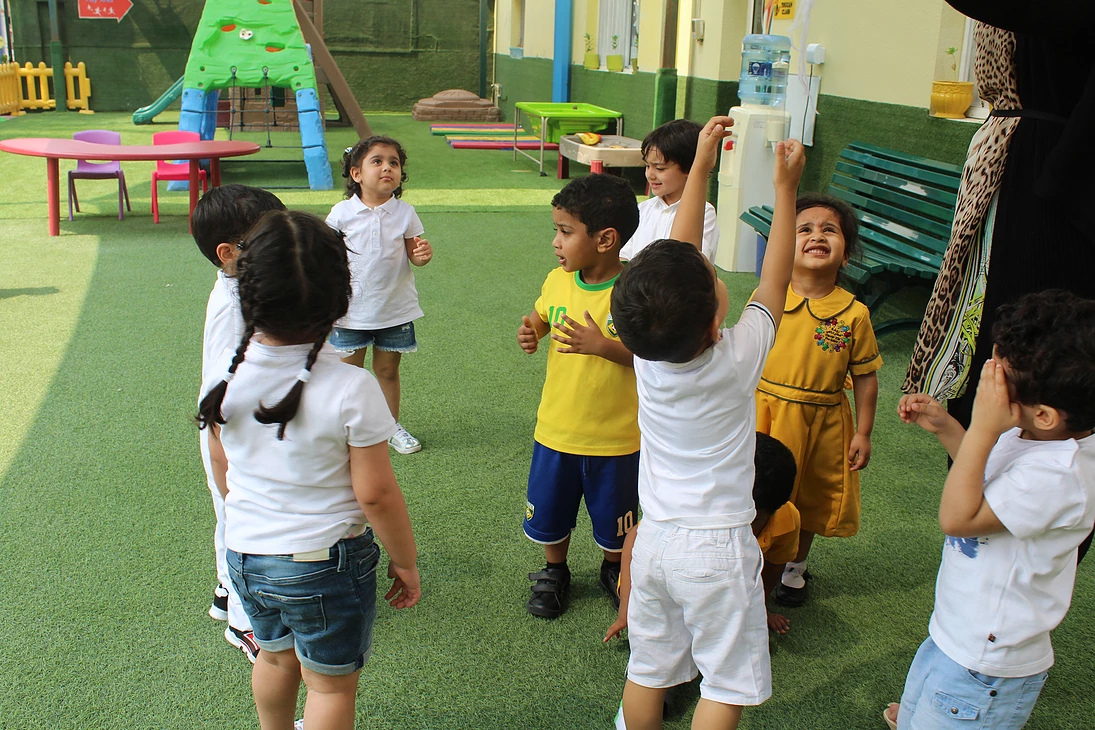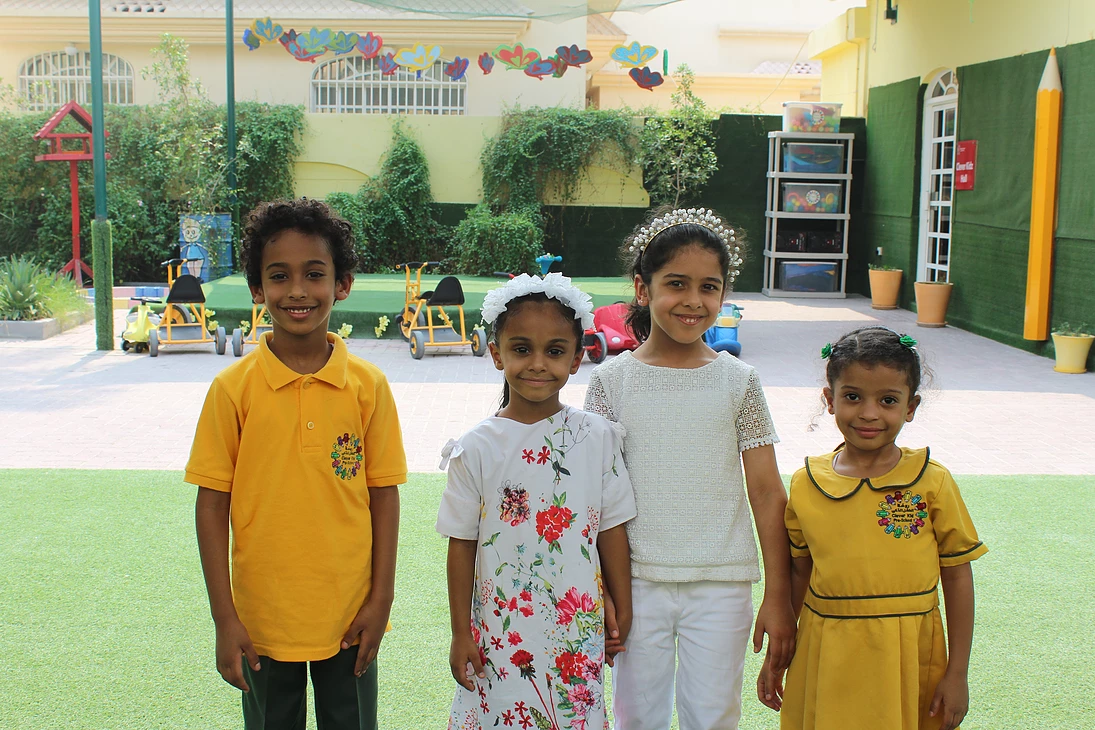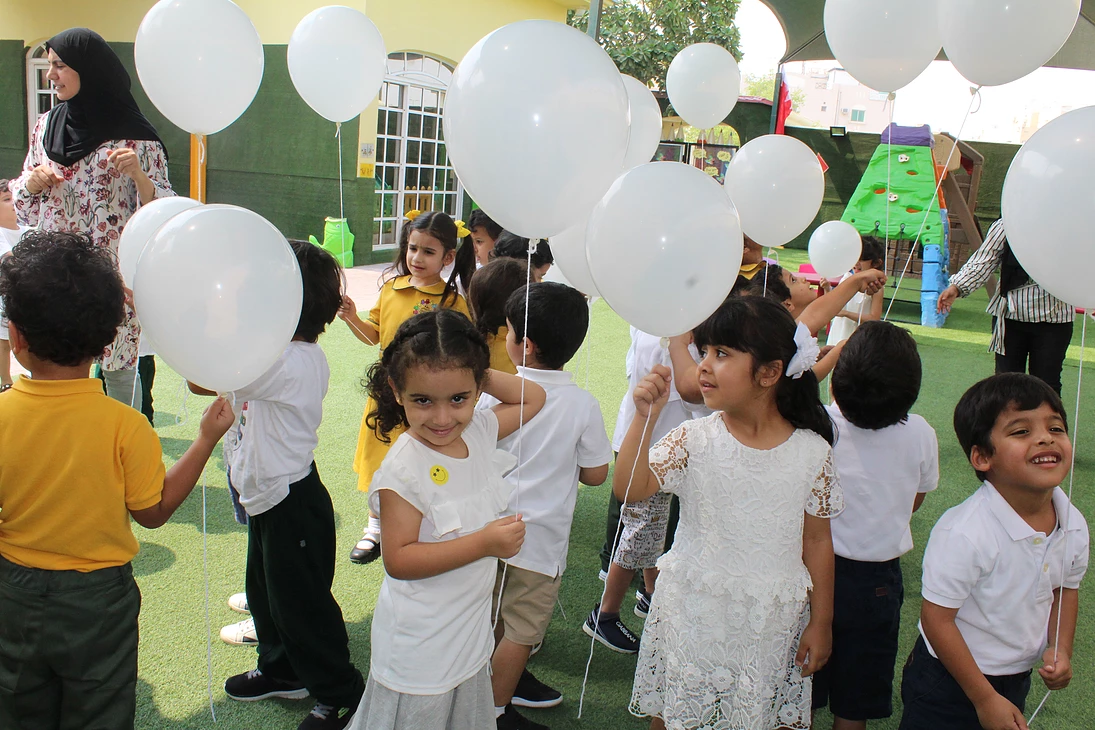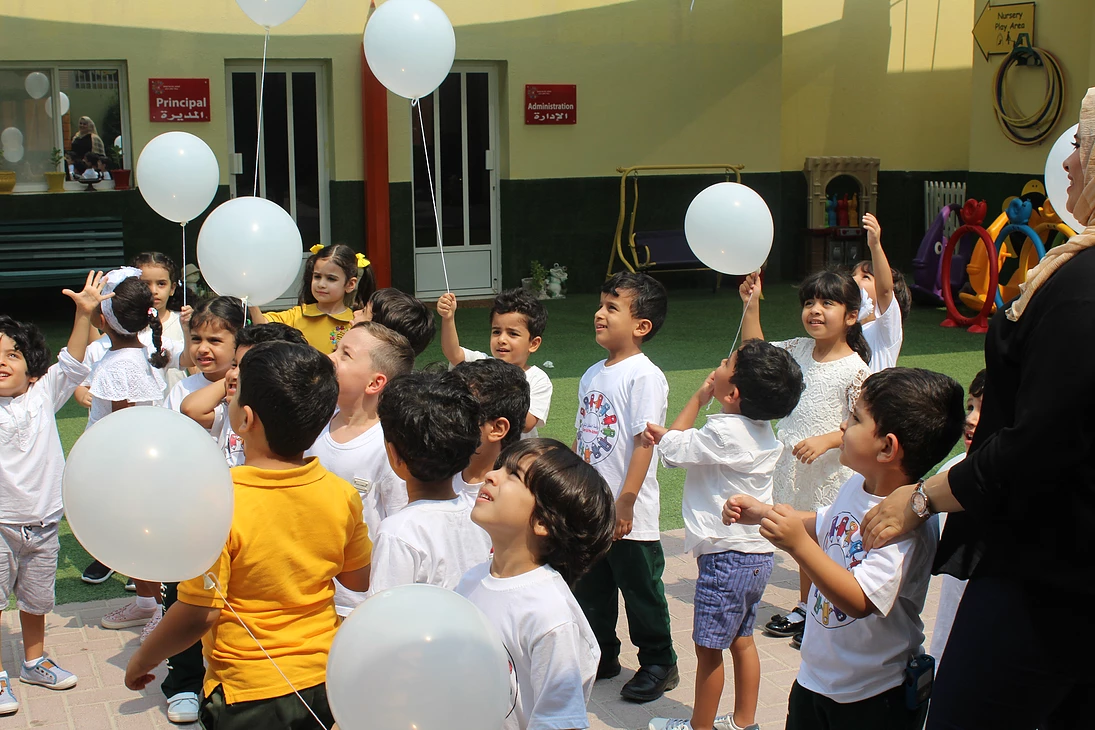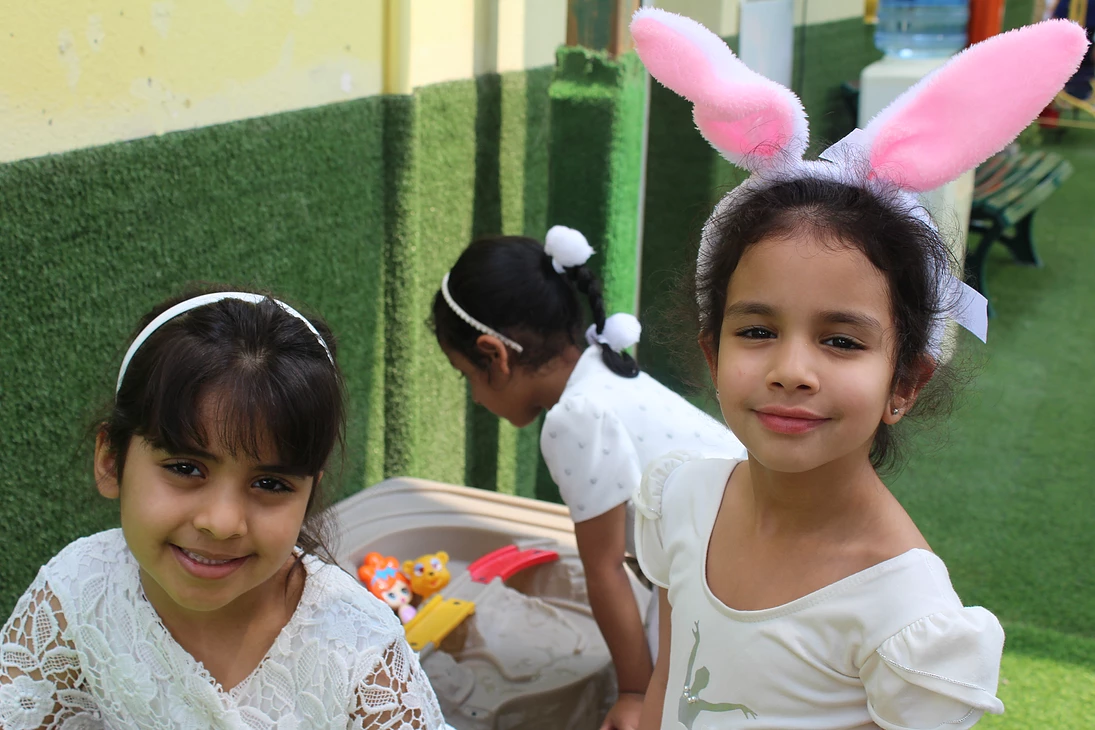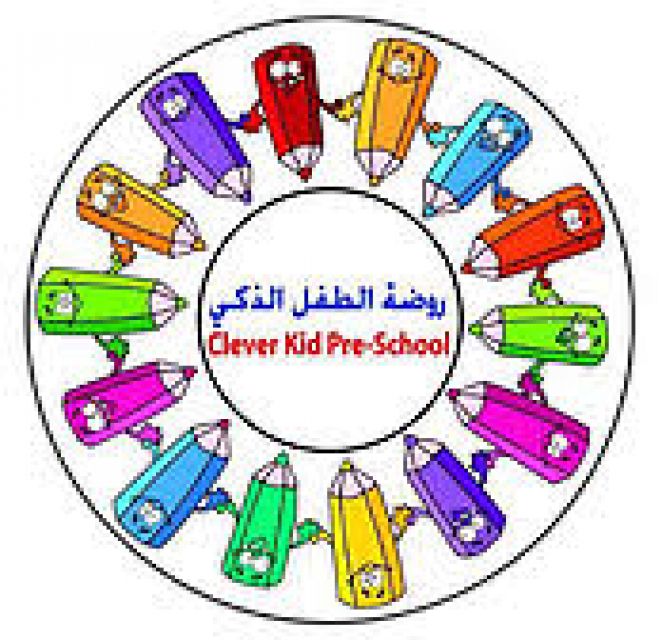
Clever Kid Pre-School
Operational Hours
Sunday : 6:30 AM To 2:30 PM || Monday : 6:30 AM To 2:30 PM || Tuesday : 6:30 AM To 2:30 PM || Wednesday : 6:30 AM To 2:30 PM || Thursday : 6:30 AM To 2:30 PM || Friday : -- || Saturday : --Description
About Clever Kid Pre-School:
Clever Kid Pre-School is a bilingual, happy and caring place where children can experience a wealth of exciting and interesting activities that will stimulate their learning, in a bright and safe environment.
We follow the British Early Years Foundation Stage (EYFS) Curriculum. The program is a dual language program and students alternate classroom instruction in these languages every other day.
We believe every child is unique and we will support your child to reach their full potential. We are committed to making both the children's and parents time with us an enjoyable experience. Our team of qualified, dedicated practitioners pride themselves on being approachable, caring and reassuring.
Our promise to you and your family:
We will provide fun and stimulating activities and an environment where children can learn through play.
We will work with you to help your children become confident, capable and caring.
We will listen to and value you and your children.
Curriculum:
Clever Kid Pre-School is dedicated to taking extra special care of all your preschooler's early learning needs. We realise each child is special and we will help and encourage your child to learn and develop.
The pre-school classes for the children complete very important pre-school learning programs and skills which give the children the understanding and the recognition of phonic sounds, counting and also recognizing numbers, quantities, colour and shapes; plus pre-reading and pre-writing programs such as writing their own names and recognizing the same.
Our Nursery Curriculum is based around the British Early Years Foundation Stage (EYFS) framework. Keeping each child's individual strengths and interests at heart and where children are granted the freedom to explore and play, igniting their passion and excitement for learning.
British Early Years Foundation Stage (EYFS) - The Principles:
A Unique Child - recognises that every child is a unique child who is consistently learning and can be resilient, capable, confident and self-assured.
Positive Relationships - describes how children learn to be strong and independent through positive relationships.
Enabling Environments - describes how children learn well in enabling environments, in which their experiences respond to their individual needs and there is a strong partnership between practitioners and parents and carers.
Learning and Development - recognises that children develop and learn in different ways. The framework covers the education and care of all children in early years provision, including children with special educational needs and disabilities.
Embedded within the principles of the EYFS are seven areas of Early Learning.
The Early Learning Goals
These set out the expectations that most children will reach by the end of EYFS. They have been written to support learning from birth. Some children will have exceeded the goals, however some will be working towards them. This may be because they are younger than their peers; they may have English as an additional language or have a learning difficulty or disability.
Communication and language
Listening and attention: children listen attentively in a range of situations. They listen to stories, accurately anticipating key events and respond to what they hear with relevant comments, questions or actions. They give their attention to what others say and respond appropriately, while engaged in another activity.
Understanding: children follow instructions involving several ideas or actions. They answer ‘how’ and ‘why’ questions about their experiences and in response to stories or events.
Speaking: children express themselves effectively, showing awareness of listeners’ needs. They use past, present and future forms accurately when talking about events that have happened or are to happen in the future. They develop their own narratives and explanations by connecting ideas or events.
Physical development
Moving and handling: children show good control and co-ordination in large and small movements. They move confidently in a range of ways, safely negotiating space. They handle equipment and tools effectively, including pencils for writing.
Health and self-care: children know the importance for good health of physical exercise, and a healthy diet, and talk about ways to keep healthy and safe. They manage their own basic hygiene and personal needs successfully, including dressing and going to the toilet independently.
Personal, social and emotional development
Self-confidence and self-awareness: children are confident to try new activities, and say why they like some activities more than others. They are confident to speak in a familiar group, will talk about their ideas, and will choose the resources they need for their chosen activities. They say when they do or don’t need help.
Managing feelings and behaviour: children talk about how they and others show feelings, talk about their own and others’ behaviour, and its consequences, and know that some behaviour is unacceptable. They work as part of a group or class, and understand and follow the rules. They adjust their behaviour to different situations, and take changes of routine in their stride.
Making relationships: children play co-operatively, taking turns with others. They take account of one another’s ideas about how to organise their activity. They show sensitivity to others’ needs and feelings, and form positive relationships with adults and other children.
Literacy
Reading: children read and understand simple sentences. They use phonic knowledge to decode regular words and read them aloud accurately. They also read some common irregular words. They demonstrate understanding when talking with others about what they have read.
Writing: children use their phonic knowledge to write words in ways which match their spoken sounds. They also write some irregular common words. They write simple sentences which can be read by themselves and others. Some words are spelt correctly and others are phonetically plausible.
Mathematics
Numbers: children count reliably with numbers from 1 to 20, place them in order and say which number is one more or one less than a given number. Using quantities and objects, they add and subtract two single-digit numbers and count on or back to find the answer. They solve problems, including doubling, halving and sharing.
Shape, space and measures: children use everyday language to talk about size, weight, capacity, position, distance, time and money to compare quantities and objects and to solve problems. They recognise, create and describe patterns. They explore characteristics of everyday objects and shapes and use mathematical language to describe them.
Understanding the world
People and communities: children talk about past and present events in their own lives and in the lives of family members. They know that other children don’t always enjoy the same things, and are sensitive to this. They know about similarities and differences between themselves and others, and among families, communities and traditions.
The world: children know about similarities and differences in relation to places, objects, materials and living things. They talk about the features of their own immediate environment and how environments might vary from one another. They make observations of animals and plants and explain why some things occur, and talk about changes.
Technology: children recognise that a range of technology is used in places such as homes and schools. They select and use technology for particular purposes.
Expressive arts and design
Exploring and using media and materials: children sing songs, make music and dance, and experiment with ways of changing them. They safely use and explore a variety of materials, tools and techniques, experimenting with colour, design, texture, form and function.
Being imaginative: children use what they have learnt about media and materials in original ways, thinking about uses and purposes. They represent their own ideas, thoughts and feelings through design and technology, art, music, dance, role-play and stories.
We teach self-reliance and independence. This teaching method helps the children become independent by teaching him or her life skills, which is called practical life. Children learn to dress themselves, help cook, put their toys and clothes away and take an active part in their household, neighbourhood and school.
* For young children we believe in a hands on approach to learning. It encourages children to develop their observation skills by doing many types of activities. These activities include use of the five senses, kinetic movement, spatial refinement, small and large motor skill coordination, and concrete knowledge that leads to later abstraction.
* In the classroom environment, the teacher prepares and presents the materials needed for the child to carry out his/her great work, and offers them to the child in the form of individual or small group presentations. Once an initial presentation or lesson has been given the activities are freely chosen and frequently repeated according to a child's needs.

Please Login to add your review.



